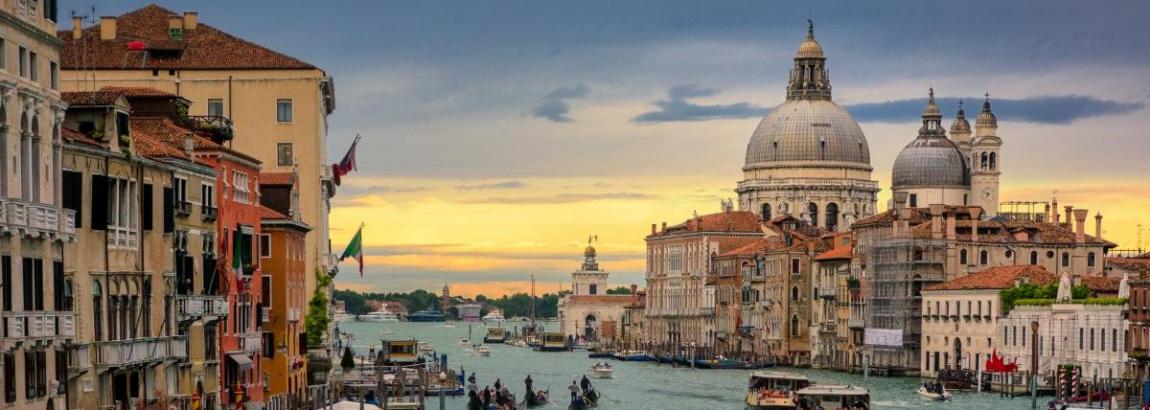
| City - Airport | Arrival: | ||
| Iasi | Chisinau | ||
| from Bucharest (BUH) | BUH → IAS | BUH → RMO | |
| - Henri Coanda (OTP) | OTP → IAS | OTP → RMO | |
There are many Gothic and Renaissance palaces along it. St. Mark's Square is the main one in the city. Here is the Cathedral of St. Mark, decorated with Byzantine mosaics, as well as a bell tower overlooking the red roofs of the city houses.
main city square of Venice, Italy. Logically it consists of two parts: Piazzetta - platforms from the Grand Canal to the bell tower, and the Piazza itself. The square was formed in the 9th century as a small space in front of St. Mark's Cathedral. In 1177, on the occasion of the meeting between Frederick Barbarossa and Pope Alexander III, it was expanded to its current size. It was in this square that the main city festivals, including the Venetian carnival, were traditionally held.
one of the four bridges over the Grand Canal in Venice, located in the Rialto quarter. The very first and oldest bridge over the canal. The most famous bridge in Venice and one of the symbols of the city. Built in the narrowest part of the Grand Canal. It was originally made of wood and collapsed several times. At the end of the 16th century, a new stone bridge was erected, which has survived to this day.
the Cathedral of Venice, which is a rare example of Byzantine architecture in Western Europe. Located in St. Mark's Square, next to the Doge's Palace. It has the status of a patriarchal basilica. The cathedral, adorned with numerous Byzantine-style mosaics, is the home of the relics of the Apostle Mark and many valuable art objects removed from Constantinople during the Crusades.
the name of one of the bridges in Venice over the Palace Canal - Rio di Palazzo. The Bridge of Sighs was built by Antonio Conti in 1602 and is decorated in a Baroque style. The bridge connects the building of the Doge's Palace, which housed the courtroom, and the prison building. The “sighs” from which this bridge takes its name are not the sighs of lovers, but the sad sighs of the condemned, who, passing under guard over this covered bridge, glanced at Venice for the last time.
cathedral church in Venice on the Grand Canal in the Dorsoduro area. Built in 1631-1687. in memory of the deliverance of the city from the plague of 1630-1631. The architecture of the temple is often attributed to the Baroque style. This is conditional, since the Baroque style in its classical version in Venice did not receive sufficient development. But even for the Venetian architecture of the 17th century, the composition of the church is unusual.
the island quarter of Venice, located at a distance of 7 km from the city center, next to the island of Torcello, with a population of 2,724 inhabitants. Known for its brightly colored houses.
art museum, which houses the largest collection of Venetian painting of the XIV-XVIII centuries. The Academy is located on the southern bank of the Grand Canal, in the Dorsoduro area and gives the name to one of the four bridges across the Grand Canal. The history of the museum dates back to 1750, when the Senate, heeding the petition of G. B. Piazzetta, established the Venice Academy of Fine Arts - a school of painting, sculpture and architecture.
a great monument of Italian Gothic architecture, one of the main attractions of the city. It is located in St. Mark's Square next to the cathedral of the same name. Although the first construction on this site dates back to the 9th century, the construction of the current building was carried out between 1309 and 1424. Together with the Cathedral of St. Mark, the library of San Marco and other buildings, the Doge's Palace forms the main architectural ensemble of the city.
a small museum in the Palazzo Venir dei Leoni on the Grand Canal in Venice, one of several museums of the Solomon Guggenheim Foundation. The permanent exhibition includes over 300 works. The museum displays works by Picasso, Leger, Severini, Mondrian, Kandinsky, Miro, Klee, Ernst, Magritte, Dali and other artists.
The historic quarter of Venice, located in the San Polo and San Marco districts, is considered the financial and commercial center of Venice. Famous for its attractions, in particular the Rialto Bridge. The area was inhabited in the 9th century, and has gained great importance since 1097, when the markets of Venice were located here.
Airports: